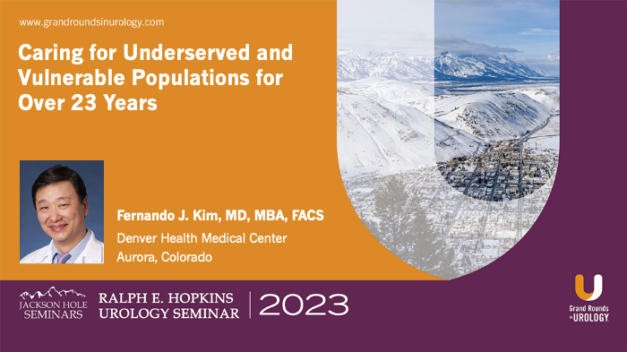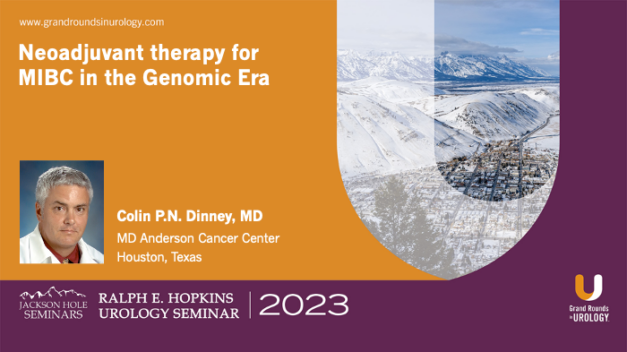Caring for Underserved and Vulnerable Populations for Over 23 Years
Fernando Kim, MD, MBA, FACS, Chief Emeritus of Urology at Denver Health Medical Center and Professor of Surgery/Urology at the University of Colorado at Denver, shares insights gathered from his more than 23 years of caring for underserved and vulnerable populations. Dr. Kim describes some of the needs and characteristics of these populations, and gives examples of the traumatic experiences to which those populations are regularly exposed. He also emphasizes the importance of physicians understanding their patients’ cultures, communication styles, and needs so that they can effectively treat those patients.
He addresses time constraints for patients who cannot afford to be out of work, and how developing a minimally-invasive practice can help support those patients. He cites disparate oncological profiles along demographic lines, as well as research that supports multiple factors influencing patient treatment selection. For example, he explains that, especially for African-American men, the less invasive nature of cryoablation appeared to influence opinions regarding surgery for the treatment of localized prostate cancer.
Dr. Kim cites another study that reaffirms the importance in health disparities research of modeling interactions between race/ethnicity and variables that reflect diverse aspects of a patient’s socioeconomic circumstances, since the research showed that doctors’ treatment recommendations were less aggressive for poor or indigent populations. He concludes by reemphasizing the importance of empathy, cultural humility, and understanding when working with vulnerable and underserved communities.
Read More



